- (7)
- (2)
- (4)
- (43)
- (12)
- (4)
- (3)
- (1)
- (50)
- (7)
- (43)
- (16)
- (33)
- (7)
- (1)
- (1)
- (6)
- (3)
- (4)
- (1)
- (7)
- (1)
- (82)
- (4)
- (9)
- (3)
- (3)
- (5)
- (4)
- (18)
- (4)
- (86)
- (8)
Immerse yourself in the transformative power of Hatha Yoga with Ecologic Thailand's 29-day Certified Hatha Yoga Teacher Training. Nestled in the heart of the Ranong...
Immerse yourself in the transformative power of Hatha Yoga with Ecologic Thailand's 29-day Certified Hatha Yoga Teacher Training. Nestled in the heart of the Ranong...
Welcome to the transformative journey of the "29 Days, Certified Hatha Yoga Teacher Training" at Eco-Logic Thailand. This immersive course, set amidst the tranquil beauty...
Immerse yourself in the transformative power of Hatha Yoga at Shambhala Yoga Koh Tao. Our one-day class is a journey of self-discovery, designed to energize,...
1. Absolute Sanctuary – Located on the stunning island of Koh Samui, Absolute Sanctuary offers a variety of hatha yoga retreats to choose from. From restorative and vinyasa classes to meditation and pranayama sessions, you’ll find something to suit your needs. In addition to the yoga classes, guests can also enjoy a range of healing treatments, such as Thai massage, Ayurveda and reiki.
2. Suryalila Yoga Retreat Centre – Located in the Andalusia region of southern Spain, Suryalila is an idyllic retreat center set among lush olive groves and rolling hills. The center offers a variety of hatha yoga retreats, from beginner to advanced, as well as specialty retreats such as yoga for fertility, yoga for back care, and yoga for stress relief. The retreat center also offers a range of holistic treatments, from acupuncture to massage and body work.
3. Samahita Retreat – Located on the island of Koh Samui, Samahita Retreat offers a variety of hatha yoga retreats and workshops. From beginner to advanced levels, the retreats focus on a holistic approach to yoga, incorporating both physical and spiritual practices. In addition to the yoga classes, guests can also enjoy a range of healing treatments, such as Thai massage, Ayurveda and reiki.
4. Kamalaya Wellness Sanctuary – Located in the picturesque island of Koh Samui, Kamalaya is an award-winning wellness sanctuary that offers a range of hatha yoga retreats and workshops. From beginner to advanced levels, the retreats focus on a holistic approach to yoga, incorporating both physical and spiritual practices. In addition to the yoga classes, guests can also enjoy a range of healing treatments, such as Thai massage, Ayurveda and reiki.
5. Thai Chi Yoga – Located in the beautiful city of Chiang Mai, Thai Chi Yoga offers a variety of hatha yoga retreats and workshops. From beginner to advanced levels, the retreats focus on a holistic approach to yoga, incorporating both physical and spiritual practices. In addition to the yoga classes, guests can also enjoy a range of healing treatments, such as Thai massage, Ayurveda and reiki.
Whether you’re looking for a relaxing getaway or a more intensive yoga practice, Thailand is a great destination for hatha yoga retreats. With its stunning beaches, vibrant culture and spiritual energies, it’s no wonder why so many people are drawn to the country for their yoga practice.
Thailand is a popular holiday destination for those wanting to combine sightseeing with a Hatha relaxing yoga retreat. With its stunning beaches, tropical islands, and vibrant culture, Thailand is the perfect place to practice yoga and enjoy a well-deserved break from the stresses of everyday life.
Thailand is home to a number of Hatha yoga retreats, with many of them offering a range of packages for all levels of yoga practitioners. Whether you’re a beginner or a seasoned pro, you’ll find a retreat that suits your needs. Typically, retreats include daily yoga classes, meditation and pranayama, as well as a variety of other activities, such as trekking, spa treatments and cultural excursions.
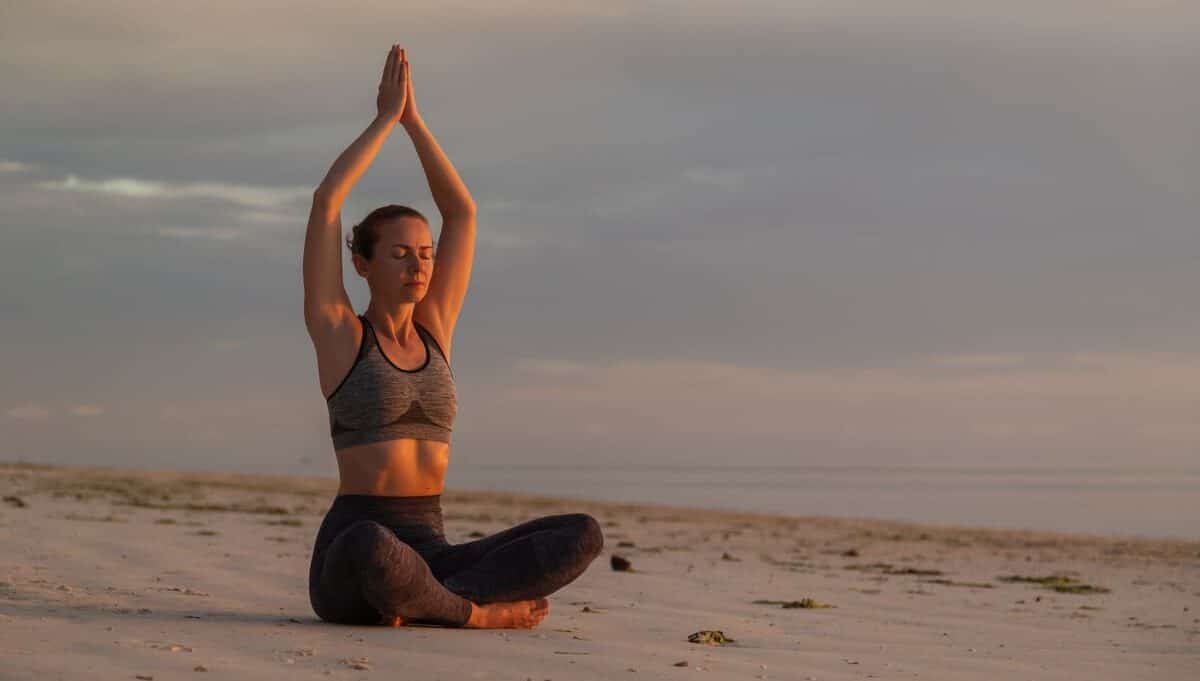
After a day of yoga, you can explore the many attractions Thailand has to offer, such as its stunning beaches, vibrant nightlife, and ancient temples. Whether you’re looking to relax on the beach or explore the city, Thailand has something for everyone.
Hatha yoga holidays in Thailand offer a unique combination of relaxation, sightseeing and cultural exploration. With its stunning landscapes, vibrant culture and welcoming people, it’s no wonder why Thailand is a popular destination for yogis of all levels.
-Hatha Yoga is a form of yoga that originated in India and is now popular around the world. In Thailand, Hatha Yoga is becoming increasingly popular as an alternative form of physical exercise, relaxation, and spiritual practice. It is often taught in classes, retreats, and private sessions, as well as in yoga studios, yoga centres, and health clubs.
-Hatha Yoga classes in Thailand typically involve physical postures, breathing techniques, and relaxation. The postures focus on strengthening and stretching the body in order to improve flexibility and balance. Breathing techniques are also taught, which help to calm the mind and bring about a sense of calm and clarity. With regular practice, the physical postures and breathing techniques help to create a deep sense of relaxation in both the body and mind.
-Many Hatha Yoga classes in Thailand also combine physical practice with meditation and mindfulness techniques. By focusing on the breath and developing an awareness of the present moment, practitioners can gain insight into their thoughts and emotions, as well as gain a deeper understanding of themselves.
-Hatha Yoga classes in Thailand are suitable for all levels, from beginners to more advanced practitioners. With the guidance of a qualified teacher, practitioners can work at their own pace and develop their practice.
Hatha yoga is a type of yoga that focuses on physical postures, breathing exercises, and meditation. It is sometimes referred to as the “parent” of all other types of yoga, as it is the basis for most of the other styles. Unlike some other forms of yoga, such as Ashtanga and Vinyasa, Hatha yoga classes tend to be slower-paced and more focused on holding poses and connecting with the breath.
Common poses in Hatha yoga include standing poses, such as Warrior I, II and III; seated poses, such as Seated Forward Bend and Seated Twist; and inverted poses, such as Headstand and Shoulder stand. Breathing exercises, such as Pranayama, are also practiced.
The practice of Hatha yoga can be a great way to reduce stress and tension, improve physical strength and flexibility, and relax the body and mind. It can also help to improve posture, balance, and coordination. Hatha yoga is suitable for all levels of practitioners, from beginners to advanced.
Hatha yoga is a type of yoga that focuses on physical postures (asanas), breathing techniques (pranayama), and meditation. It is a gentle and slower paced form of yoga, which makes it suitable for all levels of practitioners. It is often used as a starting point for those who are new to yoga, as it allows the body to become familiar with the poses and breathing techniques. Hatha yoga usually combines physical postures with breathing techniques, relaxation techniques, and meditation.
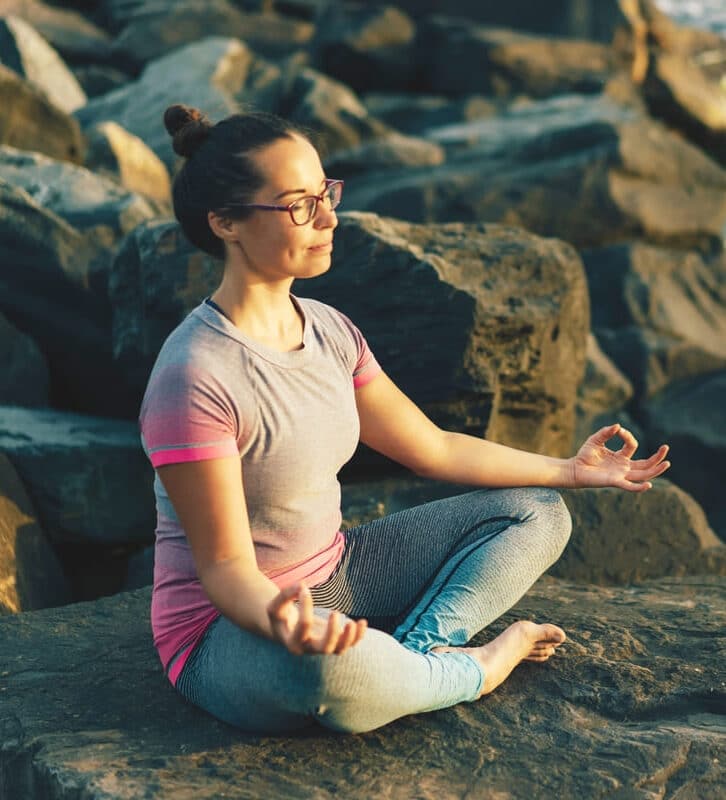
1. Start in Mountain Pose (Tadasana): Stand tall with your feet together, arms at your sides, and your palms facing forward. Take a few moments to feel your feet on the ground and your body in the present moment.
2. Move into Chair Pose (Utkatasana): Bend your knees and lower your hips as if you’re sitting in a chair. Reach your arms up toward the sky and press your palms together. Feel your spine lengthening and your chest opening.
3. Move into Warrior I (Virabhadrasana I): Step your feet wide apart and turn your right foot out to the side. Bend your right knee and keep your left leg straight. Reach your arms up and press your palms together. Gaze forward and feel your strength.
4. Move into Warrior II (Virabhadrasana II): Turn your left foot out to the side and bend both knees. Reach your arms out to the sides and press your palms together. Feel the strength in your legs and arms.
5. Move into Extended Side Angle Pose (Utthita Parsvakonasana): Keep your right leg bent and your left leg straight. Reach your right arm forward and your left arm back and press your palms together. Feel the stretch along your sides.
6. Move into Triangle Pose (Trikonasana): Step your feet together and turn your left foot out to the side. Reach your right arm forward and your left arm back. Feel the stretch along your sides and your spine.
7. Move into Downward-Facing Dog (Adho Mukha Svanasana): Step your feet apart and press your palms and toes into the ground. Lift your hips up and back and press your chest toward your thighs. Feel your spine lengthening and your shoulders relaxing.
8. Move into Child’s Pose (Balasana): Kneel on the ground and sit back on your heels. Reach your arms forward and relax your forehead on the ground. Feel your breath calming your body.
9. Move into Corpse Pose (Savasana): Lie flat on your back and relax your arms and legs. Close your eyes and let your breath deepen. Feel your body melting into the ground.
10. Move into Corpse Pose (Savasana): Lie flat on your back and relax your arms and legs. Close your eyes and let your breath deepen. Feel your body melting into the ground. Stay in this pose for 5-10 minutes, allowing your body and mind to relax.
Hatha yoga is a type of yoga that combines breathing exercises, physical postures, and meditation. It is a gentle form of yoga, perfect for beginners, and can be adapted to suit individual needs and abilities. The following is a brief overview of some of the most popular hatha yoga positions and techniques:
1. Sun Salutation (Surya Namaskar): This is a traditional yoga sequence consisting of 12 poses that are performed in a continuous flow. It is used to warm up the body and increase flexibility.
2. Standing Poses: Standing poses help to strengthen and stretch the legs and core muscles. Popular standing poses include Triangle Pose (Trikonasana), Warrior Pose (Virabhadrasana), and Chair Pose (Utkatasana).
3. Seated Poses: Seated poses help to improve posture and balance and are often used to cool down after more strenuous poses. Popular seated poses include Hero Pose (Virasana), Cobbler Pose (Baddha Konasana), and Child’s Pose (Balasana).
4. Backbends: Backbends are poses that focus on stretching the front of the body and opening the chest and lungs. Popular backbends include Cobra Pose (Bhujangasana), Bow Pose (Dhanurasana), and Bridge Pose (Setu Bandhasana).
5. Inversions: Inversions are poses that involve inverting the body, such as upside-down poses. Popular inversions include Headstand (Sirsasana), Shoulder Stand (Sarvangasana), and Plow Pose (Halasana).
6. Pranayama: Pranayama is a type of breathing exercise that helps to control the breath and increase oxygen intake. Popular pranayama exercises include Nadi Shodhanam (alternate nostril breathing) and Bhramari (humming bee breath).
7. Meditation: Meditation helps to focus the mind and cultivate mental clarity. Popular meditation techniques include mindfulness meditation, mantra meditation, and visualization meditation.
1. Improved flexibility: Hatha yoga focuses on gentle stretching, which can help to increase flexibility and range of motion in the body.
2. Stress relief: Through breathing exercises, meditation and gentle physical postures, Hatha yoga can help to reduce stress and anxiety.
3. Improved posture: Regular Hatha yoga practice can help to improve posture and body alignment.
4. Improved strength and balance: Many Hatha yoga postures require strength and balance, which can help to improve overall fitness.
5. Improved concentration: Through the practice of focusing on breath and body, Hatha yoga can help to improve focus and concentration.
6. Improved wellbeing: Hatha yoga can help to promote an overall sense of wellbeing, both emotionally and physically.
Hatha yoga is a great way to improve overall physical health and mental wellbeing. It can help reduce stress, improve flexibility, build strength, improve balance, increase energy, and improve posture. It can also help improve concentration, improve breathing, and reduce anxiety. Regular practice of Hatha yoga can also help improve overall health, leading to a healthier lifestyle.
Hatha yoga is a great way to increase flexibility, strength, and balance, as well as reduce stress and improve overall health. It can also be used to help with relaxation and meditation. Additionally, it can be used as a form of physical therapy to help with back pain, joint pain, and more.
The purpose of a Hatha yoga retreat is to provide a space for participants to deepen their practice of Hatha yoga and reset their minds and bodies. A Hatha yoga retreat typically includes guided yoga classes, meditation, relaxation, and discussions about how to bring Hatha yoga into everyday life. Participants also have the opportunity to rest, restore, and explore self-care practices.
A Hatha Yoga retreat in Thailand can provide transformational experiences and provide a unique opportunity to deepen your yoga and meditation practice as well as a chance to explore the beauty and culture of Thailand.
The retreats typically offer a range of Hatha Yoga classes and meditation sessions to help you progress and deepen your practice. You can also experience other activities such as Thai massage, Thai cooking classes, and excursions to explore the local area.
The retreats give you the perfect opportunity to relax, rejuvenate and reconnect with nature while also providing the chance to meet like-minded people. A Hatha Yoga retreat in Thailand can help you to discover a sense of inner peace and a feeling of wellbeing and is a great way to break from your everyday routine and spend some quality time with yourself.
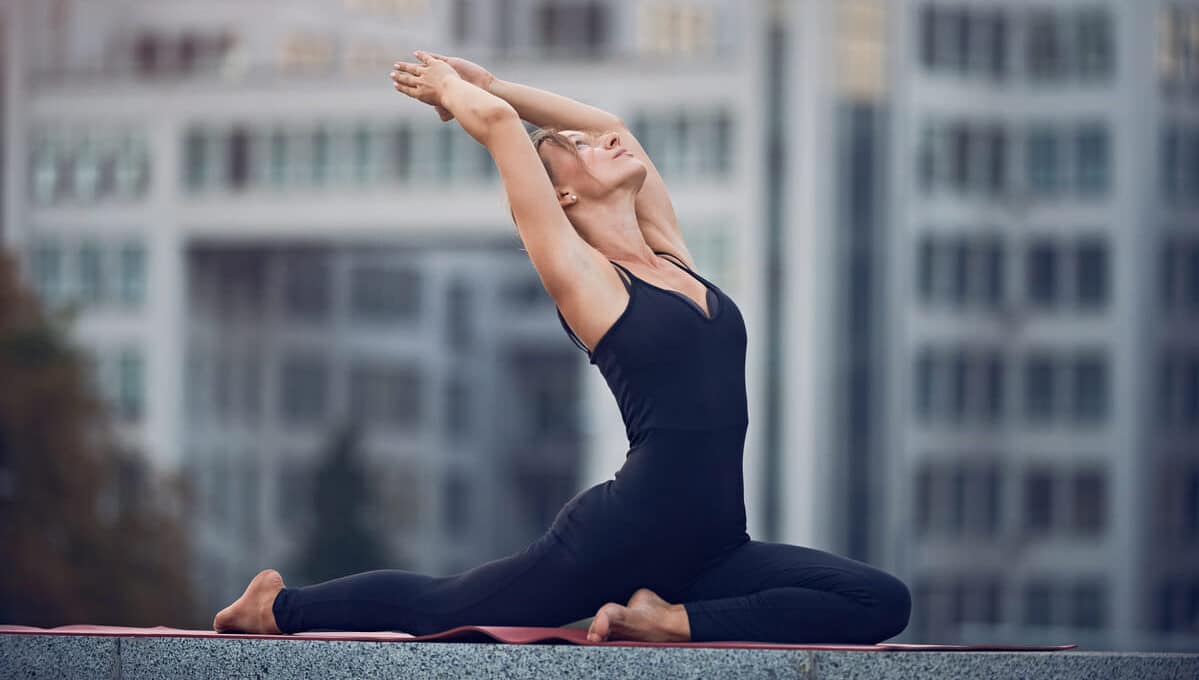
Thailand Hatha Yoga Retreats offer an immersive and unique experience for yoga practitioners. Depending on the retreat centre, practitioners can expect a variety of activities from traditional Hatha yoga classes, to pranayama (breathing) and meditation practices, to yoga philosophy lectures and workshops. Some retreats also function as a meditation retreat, and you can practise and improve your meditation techniques. Along with yoga classes and activities, many retreat centres also offer cultural excursions, massage and spa treatments, and access to local temples and sites of spiritual significance. The main goal of these retreats is to provide a space to deepen the practice of yoga and to connect with the beautiful culture and nature of Thailand.
A Hatha Yoga programme typically includes a variety of postures (asanas), breathing techniques (pranayama), and relaxation techniques. The classes usually focus on physical alignment and awareness, and the emphasis is on proper form and technique. Other elements may include chanting, meditation, and visualisation. Students are encouraged to take their practice at their own pace and to listen to their bodies.
A Hatha yoga retreat offers an opportunity to take a break from the hustle and bustle of everyday life and focus on your physical, mental and spiritual well-being. During the retreat, you will participate in a variety of Hatha yoga classes, meditations, and workshops that are intended to help you relax and reach your goals. You will also have the chance to explore the ancient and modern teachings of yoga and learn more about its philosophy and benefits.
On a Hatha yoga retreat, you can expect to take part in various types of Hatha yoga classes and workshops, such as Pranayama, Asana, and Meditation. You will also have the opportunity to practice yoga in the presence of a certified teacher, who will guide you through the poses and provide personalized assistance.
In addition to the yoga classes and workshops, many retreats offer additional activities such as nature walks and excursions, cooking classes, and workshops on nutrition, health, and wellness. These activities are designed to help you relax and re-energise and to deepen your understanding of yoga and its teachings.
At the end of the retreat, you will have gained a greater understanding and appreciation of yoga and the role it plays in your overall well-being. You will also have gained the tools to continue your yoga practice and to live a healthier, more balanced life.
Depending on the specific retreat, a Hatha yoga retreat in Thailand can offer a variety of activities and experiences, from meditation and chanting to Thai massage and cultural excursions. In addition to yoga classes, some retreats may also include activities such as cooking classes, nature walks, group work, and other spiritual practices. Many retreats also offer access to holistic therapies such as acupuncture and Reiki. Lastly, retreats may also provide an opportunity to connect with like-minded individuals and explore the local culture, cuisine, and sites.
A Hatha yoga retreat in Thailand is unique because it combines the traditional practice of yoga with the serene beauty and culture of Thailand. The retreats often take place in exotic locations such as tropical beaches, lush jungles, and ancient temples, allowing you to experience a truly unique and spiritual journey. The retreats are typically set in a supportive and nurturing environment, with experienced teachers offering personal guidance and support, meaning each participant can gain the most out of their experience. The retreats also offer a variety of activities such as meditation, pranayama and yoga Nidra, as well as cultural experiences and excursions, giving participants the opportunity to explore the local area and gain insight into the culture and people of Thailand.
Yes, a beginner can go on a Hatha yoga retreat in Thailand. Many yoga retreats are designed to accommodate all skill levels, from beginners to advanced practitioners. Many retreats also provide instruction and guidance for those who are new to the practice.
Thailand offers a variety of choices for yoga teacher training courses because it has a diverse range of temples, monasteries, and ashrams where you can practice and learn the traditional teachings of Hatha Yoga. Additionally, the country is home to many experienced yoga teachers who are dedicated to providing quality education and a safe learning environment. The tropical climate and natural beauty of the country also make it an ideal place to relax and recharge during your teacher training journey.
The cost of a Hatha Yoga Retreat Holiday in Thailand can vary widely depending on the duration of the retreat, the number of participants and the type of accommodation and activities included. Generally, a 5-7 day retreat can cost anywhere from £750-£2500 per person, depending on the amenities and services included.
While it is generally safe to travel solo in Thailand, it’s important to take the necessary precautions to ensure a comfortable and safe trip. Research the area and retreat centre you plan to visit and make sure you are familiar with local customs and laws. Consider carrying a copy of your passport with you at all times, and keep your valuables and cash in a secure place. Also, be sure to purchase travel insurance and medical insurance prior to embarking on your trip.
1. Consider your personal needs. What kind of yoga do you want to practice? Do you prefer a more spiritual or physical focus? Do you want to focus on a specific type of yoga or practice a variety of styles? Do you want to focus on physical fitness or relaxation? Knowing what kind of yoga is right for you and your goals will help you find the best retreat for you.
2. Choose a retreat centre with experienced teachers. Look for a retreat centre that has experienced and certified teachers who have been teaching yoga for several years. This will ensure that you’re getting quality instruction and guidance.
3. Evaluate the accommodations. Make sure the retreat centre you’re considering has comfortable and clean accommodations that meet your needs. Consider the type of room you’ll be staying in and what amenities are included.
4. Consider the cost. Retreats can vary in cost, so be sure to consider your budget when selecting a retreat. Make sure the retreat offers value for your money.
5. Look for a retreat that offers activities. Make sure the retreat offers activities and experiences that appeal to you. This could include excursions, cultural activities, and other fun activities to make the most of your retreat.
Hatha yoga is a form of yoga that focuses on physical postures and breathing exercises. It is one of the oldest styles of yoga, dating back thousands of years. Hatha yoga is often used as a foundation for other types of yoga, such as Vinyasa and Iyengar yoga. The postures and breathing exercises help to improve strength, flexibility, balance, and overall physical and mental wellbeing.
1. Asanas: Asanas are physical postures that help to strengthen and stretch the body, improve flexibility, and provide a foundation for meditation.
2. Pranayama: Pranayama is the practice of controlling the breath to relax and energize the body. It is believed that the breath can influence the mind, body, and spirit.
3. Meditation: Meditation is a practice of focusing the mind to gain mental clarity. It is believed to be a powerful tool for healing and balance.
4. Mantra: Mantras are sacred words, often chanted, that are used to focus and direct the mind.
5. Ayurveda: Ayurveda is an ancient system of medicine that promotes balance and harmony in the body through diet, lifestyle, and herbal remedies.
6. Dhyana: Dhyana is the practice of mindful contemplation and meditation. It is believed to help cultivate a deep inner awareness and connection to the divine.
Hatha yoga is a physical form of yoga that focuses on postures (asanas), breathing exercises (pranayama) and relaxation. It is used to improve strength, flexibility, and balance. Kundalini yoga is a spiritual form of yoga that focuses on awakening the latent energy in the body and moving it up the spine. It includes postures, breath work, chanting, and meditation. While Hatha yoga is a physical practice, Kundalini yoga is an energetic practice.
The frequency of your practice will depend on your individual needs and goals. Generally speaking, if you are just starting out, it is recommended to practice Hatha Yoga 1-3 times a week for a minimum of 45 minutes per session. As you become more proficient and comfortable with the practice, you can increase the frequency and duration of your practice.
1. Understand your goals: Before booking a Hatha yoga retreat in Thailand, assess your goals for the retreat and make sure that the retreat you choose is suitable for your needs.
2. Consider the type of yoga: Different types of yoga are taught at different retreats. Make sure you choose one that focuses on Hatha yoga practice.
3. Research the retreat centre: Read reviews from past participants to make sure that the retreat centre is suitable for your needs.
4. Consider the logistics: Make sure you understand the logistics of the retreat, such as the length of the retreat, the number of meals provided, the cost, the location, and the transportation options.
5. Bring the appropriate clothes and equipment: Make sure you bring the right clothing and yoga gear for the retreat.
6. Plan for extra activities: Most retreats offer activities in addition to yoga classes. Make sure to plan for extra time to explore the area and take part in those activities.
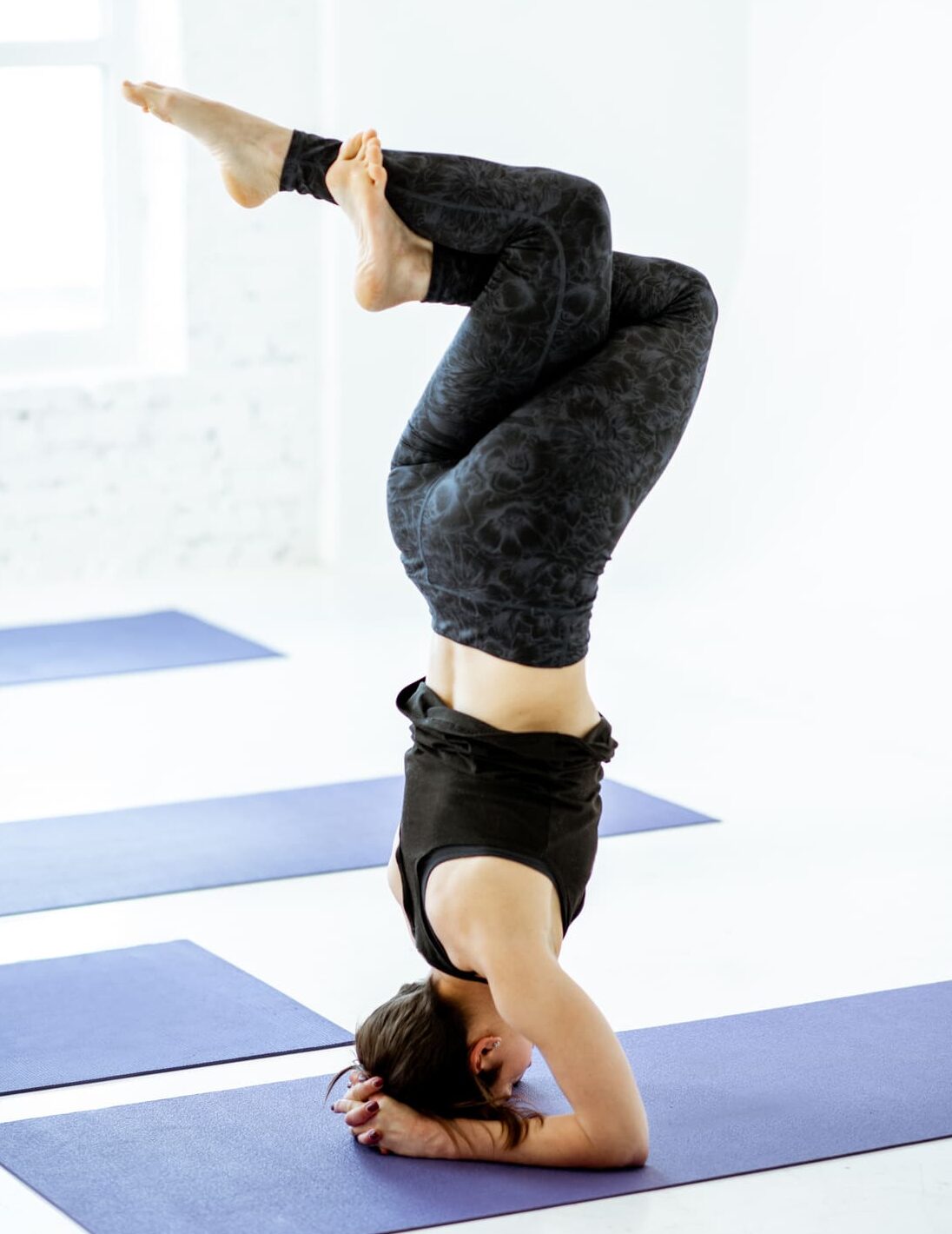
Find the ideal yoga retreat for you. These retreats are located in a variety of settings around Thailand, from peaceful beach getaways to meditative retreats in lush jungles, you will surely find the best yoga retreat for you and have a restful and revitalising experience.
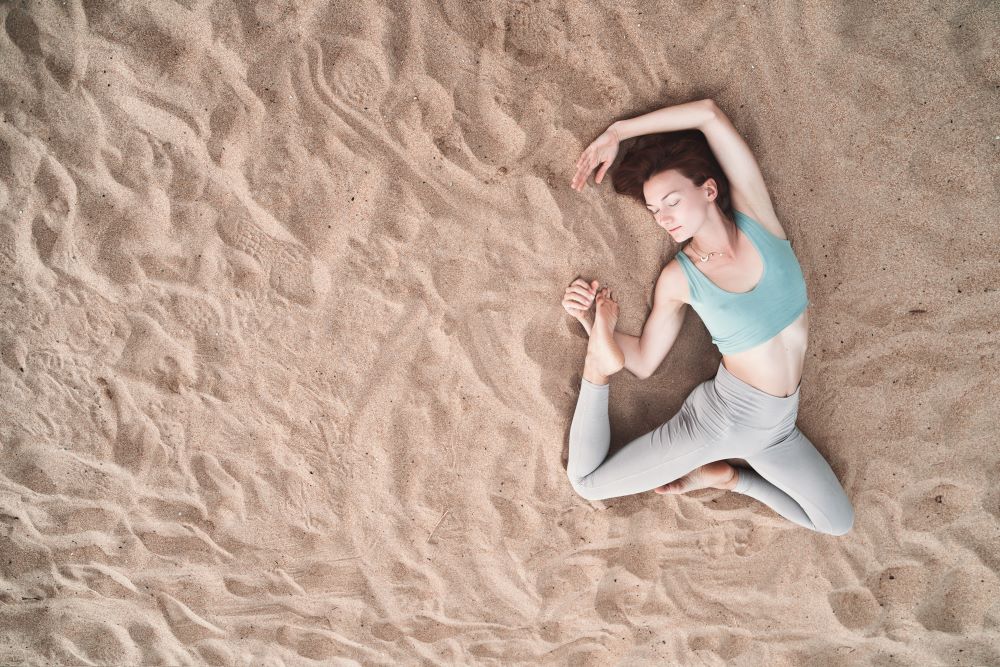

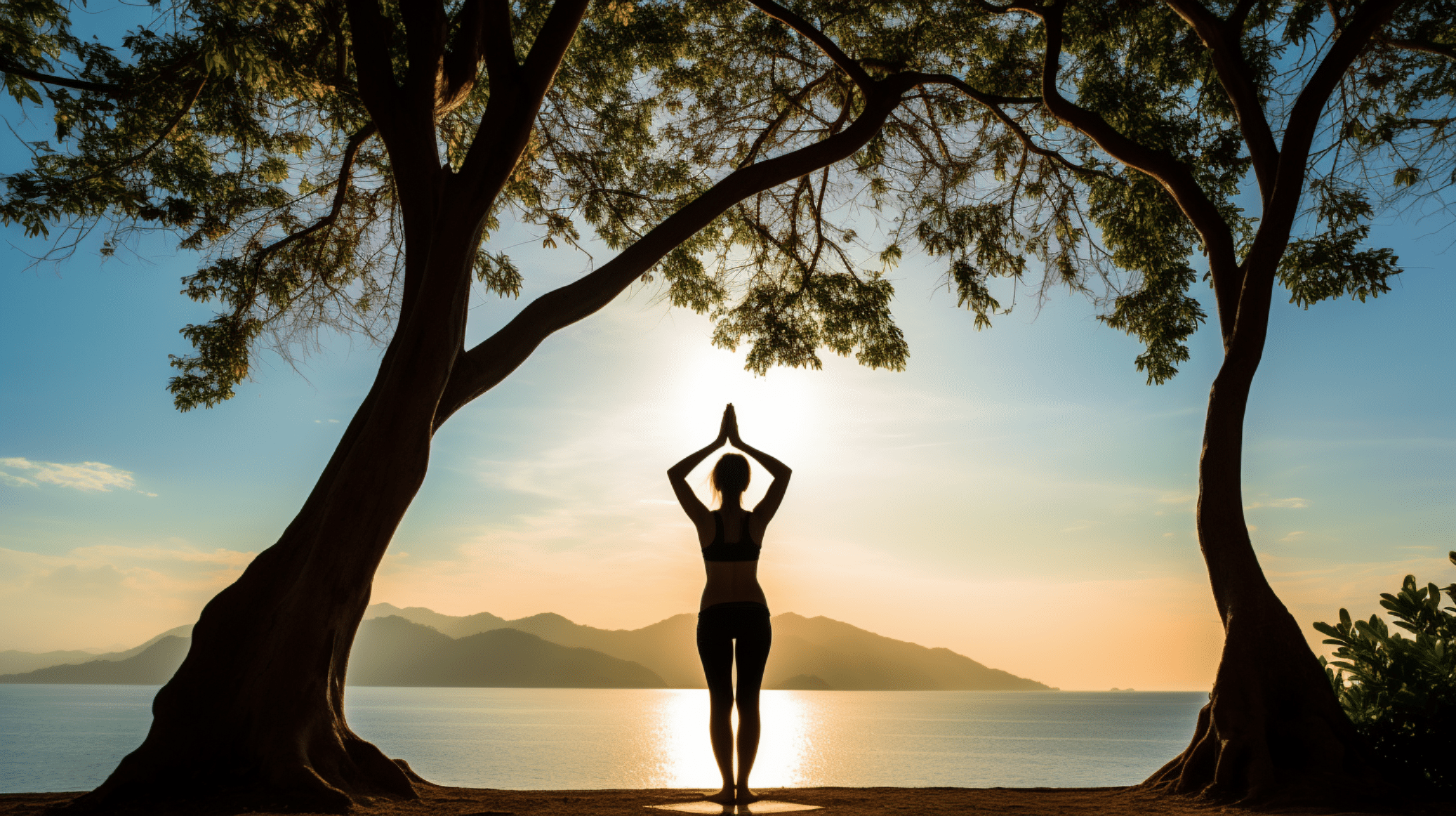
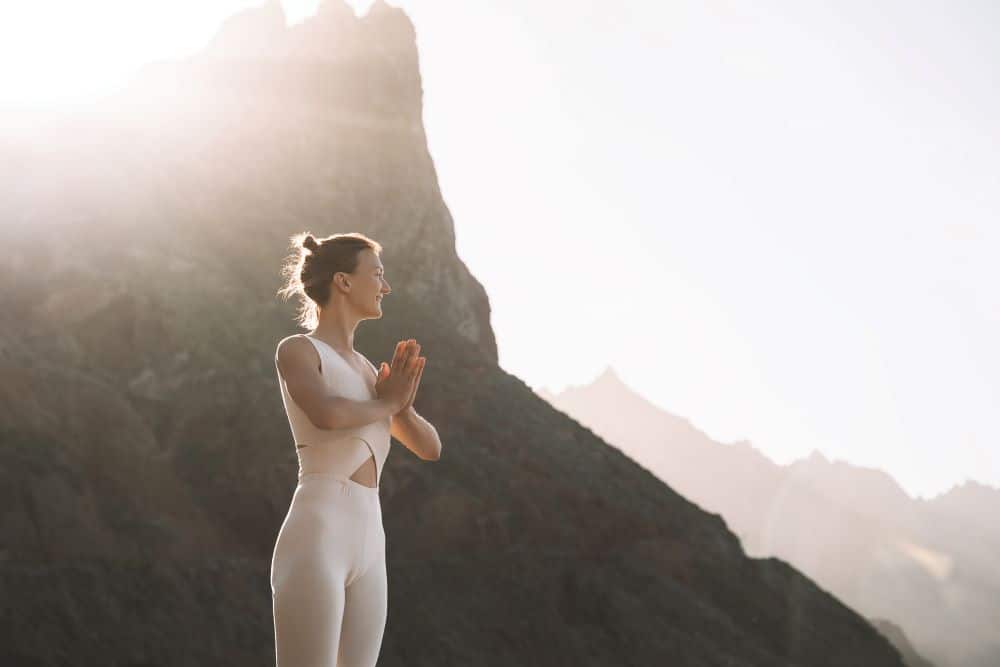
Sign up to our newsletter today to get the latest news and articles straight to your inbox from Thailand Retreats